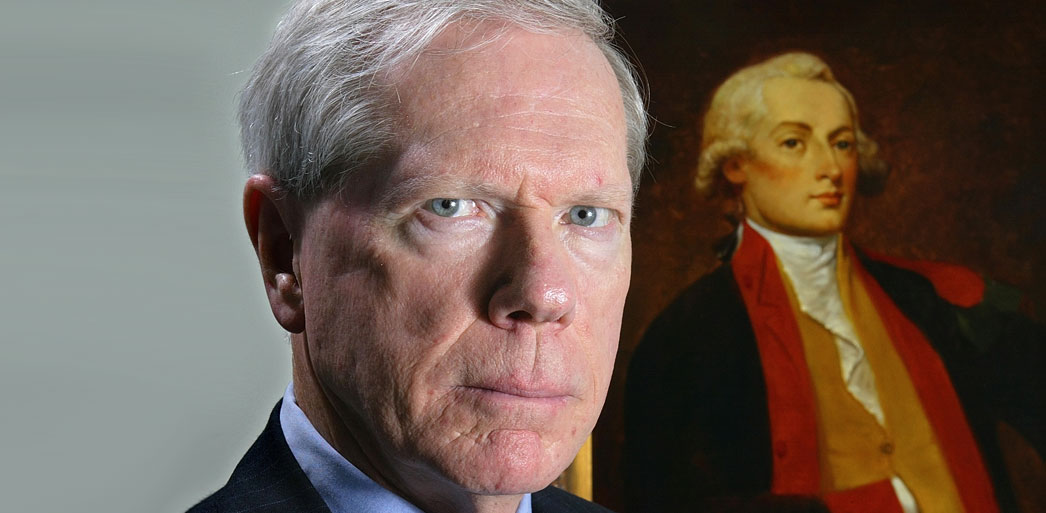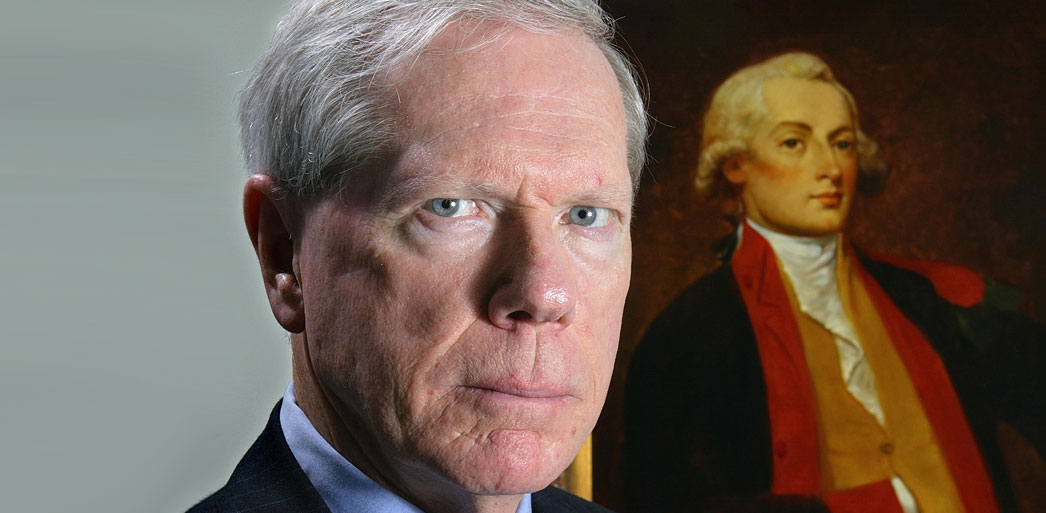Washington used the ‘Ukraine Crisis’ to bind Europe to Washington
Michael Hudson Explains that Washington’s Russian Sanctions Have Freed Russia of Her Delusions that She Had “Western Partners” while Destroying Europe Economically. Hudson’s article, slightly edited by PCR, is reproduced with permission with final comments by PCR.
Published: October 4, 2022, 10:21 am
The reaction to the sabotage of three of the four Nord Stream 1 and 2 pipelines in four places on Monday, September 26, has focused on speculations about who did it and whether NATO will make a serious attempt to discover the answer. Yet instead of panic, there has been a great sigh of diplomatic relief, even calm. Disabling these pipelines ends the uncertainty and worries on the part of US/NATO diplomats that nearly reached a crisis proportion the previous week, when large demonstrations took place in Germany calling for the sanctions to end and to commission Nord Stream 2 to resolve the energy shortage.
The German public was coming to understand what it meant that their steel companies, fertilizer companies, glass companies and toilet-paper companies were shutting down. These companies were forecasting that they would have to go out of business entirely – or shift operations to the United States – if Germany did not withdraw from the trade and currency sanctions against Russia and permit gas and oil imports to resume, and presumably prices to fall back from their astronomical eight to tenfold increases.
Yet State Department hawk Victoria Nuland already had stated in January that “one way or another Nord Stream 2 will not move forward” if Russia responded to NATO/Ukrainian accelerated military attacks on the Russian-speaking eastern oblasts. President Biden backed up U.S. insistence on February 7, promising that “there will be no longer a Nord Stream 2. We will bring an end to it. … I promise you, we will be able to do it.”
Most observers simply assumed that these statements reflected the obvious fact that German politicians were fully in the US/NATO pocket. They held fast in refusing to authorize Nord Stream 2, and Canada soon seized the Siemens dynamos needed to send gas through Nord Stream 1. That seemed to settle matters until German industry – and a rising number of voters – finally began to calculate just what blocking Russian gas would mean for Germany’s industrial firms.
Germany’s willingness to self-impose an economic depression was wavering – although not on the part of German politicians or the EU bureaucracy. If German policymakers were to put German business interests and living standards first, NATO’s common sanctions and New Cold War front would be broken. Italy and France might follow suit. That nightmare of European diplomatic independence made it urgent to take the anti-Russian sanctions out of the hands of democratic politics and settle matters by sabotaging the two pipelines. Despite being an act of violence, it has restored calm to international diplomatic relations between U.S. and German politicians. No Russian energy for Germany means no threat to Germany’s subservience to Washington.
There is no more uncertainty about whether or not Europe will break away from U.S. New Cold War aims by restoring mutual trade and investment with Russia. That option is now out. The threat of Europe breaking away from the US/NATO trade and financial sanctions against Russia has been solved, seemingly for the foreseeable future, as Russia has announced that as the gas pressure falls in three of the four pipelines, the infusion of salt water will irreversibly corrode the pipes. (Tagesspiegel, September 28.)
Where do the euro and dollar go from here?
Looking at how this trade “solution” will reshape the relationship between the U.S. dollar and the euro, one can understand why the seemingly obvious consequences of Germany, Italy and other European economies severing trade ties with Russia have not been discussed openly. The “sanctions debate” has been solved by a German and indeed Europe-wide economic collapse. For Europe, the next decade will be a disaster. There may be recriminations against the price paid for letting Europe’s trade diplomacy be dictated by NATO, but there is nothing that Europe can do about it. Nobody (yet) expects the EU to join the Shanghai Cooperation Organization. What is expected is for Europe’s living standards to plunge.
[ And, I would add, for parts for BMW, Mercedes, Porsche, and VW to become scarce.]
Germany’s industrial exports were the major factor supporting the euro’s exchange rate. The great attraction to Germany in moving from the Deutsche mark to the euro was that it prevented Germany’s export surplus from pushing up the D-mark’s exchange rate to a point where German products would be priced out of world markets. Expanding the currency to include Greece, Italy, Portugal, Spain and other countries running balance-of-payments deficit would prevent the currency from soaring. And that would protect the competitiveness of German industry.
After its introduction in 1999 at $1.12, the euro did indeed sink to $0.85 by July 2001, but recovered and indeed rose to $1.58 in April 2008. It has been drifting down steadily since then, and since February of this year the sanctions have driven the euro’s exchange rate below parity with the dollar to $0.97 this week. The major factor has been rising prices for imported gas and oil, and products such as aluminum and fertilizer requiring heavy energy inputs for their production. And as the euro’s exchange rate declines against the dollar, the cost of carrying its US-dollar debt – the normal condition for affiliates of U.S. multinationals – will rise, squeezing their profits.
This is not the kind of depression that “automatic stabilizers” can work “the magic of the marketplace” to restore economic balance. Energy dependency is structural. And the eurozone’s own economic rules limit its budget deficits to just 3% of GDP. This prevents EU national governments supporting their economies by deficit spending. Higher energy and food prices – and dollar-debt service – will leave much less income to be spent on goods and services. Not that there will be energy to produce many goods.
It seems curious that the U.S. stock market soared – 500 points for the Dow Jones Industrial Average on Wednesday. Maybe it was simply the Plunge Protection Team intervening to try and reassure the world that everything was going to be all right. But economic reality raised its ugly head on Thursday, and the stock market gave back its phantom gains.
It is true that energy starvation has ended German industrial competition with the United States as the trade account will show. But on the capital account, depreciation of the euro will reduce the value of U.S. investments in Europe and the dollar-value of any profits that these investments may still earn as the European economy shrinks. So reported earnings by U.S. multinationals will fall.
As a final kicker, Pepe Escobar pointed out on September 28 that “Germany is contractually obligated to purchase at least 40 billion cubic meters of Russian gas a year until 2030. … Gazprom is legally entitled to get paid even without shipping gas. That’s the spirit of a long-term contract. … Berlin does not get all the gas it needs but still needs to pay.” It looks like a long court battle before money will change hands – but Germany’s ability to pay will be steadily weakening.
For that matter, the ability of many countries’ ability to pay already is reaching the breaking point.
The effect of U.S. sanctions and New Cold War outside of Europe
International raw materials are still priced mainly in dollars, so the dollar’s rising exchange rate will raise import prices proportionally for most countries. This exchange-rate problem is intensified by the US/NATO sanctions forcing up world prices for gas, oil and grain. Many European and Global South countries already have reached the limit of their ability to service their dollar-denominated debts. They cannot afford to import the energy and food that they need to live if they have to pay their foreign debts. The world economy is now exceeding its debt limits, so something has to give.
On Tuesday, September 27 when news of the Nord Stream gas attacks became known, U.S. Secretary of State Antony Blinken shed crocodile tears and said that attacking Russian pipelines was “in no one’s interest.” But if that really were the case, no one would have attacked the gas lines.
I have no doubt that U.S. strategists have a game plan for how to proceed and that it is in what the neocons claim to be in the U.S. interest – that of maintaining a unipolar neoliberalized and financialized global economy for as long as they can.
They have long had a plan for countries that are unable to service their foreign debts. The IMF will lend them the money, conditional upon the debtor country raising the foreign exchange to repay the dollar loans by privatizing, that is, selling to private interests, what remains of their public domain, natural-resource patrimony and other assets, mainly to U.S. financial investors and their allies.
Will it work? Or will the countries in debt to the West band together and work out ways to restore the seemingly lost world of affordable oil and gas prices, fertilizer prices, grain and other food prices, metals and raw materials. These items supplied by Russia, China and their allied Eurasian neighbors will not be priced in the artificially high US dollar. By disassociating from the West, the third world can become independent.
Will indebted countries repudiate the debts forced upon them, protect their interests, and use currencies other than the dollar which has been bid high by Washington’s strangle hold on Europe?
U.S. global strategists think they avoided the difficulty by the sabotage of Nord Stream 1 and 2. But Washington’s solution destroys the economies of Washington’s own empire. Will Russia and China permit Washington to exercise the same power over Global South and Eurasian countries that American diplomacy wields over Germany and other European countries?
Unless an institutional alternative is created to the IMF, World Bank, International Court, World Trade Organization and the numerous UN agencies now used in US interests by U.S. diplomats and their proxies, will the coming decades see the U.S. economic strategy of financial and military dominance unfold as Washington has planned?
The problem is that Washington’s plans for the Ukraine war and anti-Russian sanctions have so far worked out just the reverse of what was intended. A large proportion of Ukraine is now reunited with Russia.
That may give some hope to others. The opposition and even contempt shown by U.S. diplomats for other countries who think they can act in their own economic interest is so strong that Washington in its self-assured hubris cannot comprehend that these countries might develop their own alternative to the U.S. world plan.
To add to Hudson’s excellent analysis, Russia and China are reaching out to South America, Asia, and Africa and offer economic opportunities to countries instead of indebtedness to America and forced sell-offs of their patrimony to foreign interests. Russia and China have sufficient economic and military power to be seen as business partners who can defend the deal. Once Russia and China remove themselves from exploitative and controlling US payments and clearing systems and the use of the US dollar, US financial hegemony is restricted to Washington’s Western puppet states.
Every German government since the demise of the National Socialist regime has been a bought and paid for US puppet government. The German population has been indoctrinated by US and Israeli control over German education. Germans have been convinced that German nationalism is evil and would result in the rise of a new Fuhrer. No German government since 1945 has made a decision in the interest of the German people rather than in the interest of Washington’s hegemony and payments to Israel. Germans are not aware of this. They have a flag. They have boundaries that indicate a country. They have a Chancellor and elected officials. Germans think they are an independent state, but they are nothing but an appendage to Washington.
Would any government concerned with its own people and their interests so willingly agree to, and enforce, sanctions against Russia that had zero effect on Russia but were calculated by Washington to destroy Germany’s economic prowess and independence?
As a high Pentagon official told me years ago, the German government reports to us. We give them bags full of money. We own them.
The German government, and all European governments have been selling out the interests of their citizens since 1945. The few European politicians who demurred, who had nationalist sentiments, have been marginalized by Washington and its bought European governments and media elites. No European or British interests have been represented by those governments in 77 years.
Today Putin, President of Russia challenges this US world order. He says it is over with. Washington, led by its Jewish neoconservatives cannot stand the thought. They are determined to destroy Russia. Putin has acknowledged their determination to destroy Russia and has communicated it to the Russian nation.
If you don’t understand that this sets the stage for war between nuclear powers, you are too stupid to justify your existence, which probably isn’t in the cards for much longer.
Michael Hudson is a research professor of Economics at University of Missouri, Kansas City, and a research associate at the Levy Economics Institute of Bard College. His latest book is The Destiny of Civilization.
All rights reserved. You have permission to quote freely from the articles provided that the source (www.freewestmedia.com) is given. Photos may not be used without our consent.
Consider donating to support our work
Help us to produce more articles like this. FreeWestMedia is depending on donations from our readers to keep going. With your help, we expose the mainstream fake news agenda.
Keep your language polite. Readers from many different countries visit and contribute to Free West Media and we must therefore obey the rules in, for example, Germany. Illegal content will be deleted.
If you have been approved to post comments without preview from FWM, you are responsible for violations of any law. This means that FWM may be forced to cooperate with authorities in a possible crime investigation.
If your comments are subject to preview by FWM, please be patient. We continually review comments but depending on the time of day it can take up to several hours before your comment is reviewed.
We reserve the right to delete comments that are offensive, contain slander or foul language, or are irrelevant to the discussion.

The inflation hoax
Yes, prices are rising, but not for the reasons the Federal Reserve says. When I say inflation is a hoax, I mean the purported cause is a hoax. The Fed is fighting a consumer inflation, a “demand-pull” inflation. But what we are experiencing is a supply-side inflation caused by the Covid lockdowns and economic sanctions that closed businesses, disrupted supply chains, and broke business relationships while reducing energy supplies to the UK and European countries, thus forcing up costs in a globalized economy.

Two-Party Pox: The Republicans suck and the Democrats want to kill you
The Republican Party has never stood up for Americans, will never stand up for them and is not going to do what it takes. Past is prologue.

Russia’s loss at Kharkov highlights crippling shortage of men
KharkovThe frontline in this case relied on heavily outnumbered 2nd rate Lugansk draftees plucked from the LPR.

A country without an honest media is lost
For some time I have reported to you that in place of a media, a media that our founding fathers relied on to protect our society, the United States has had a propaganda ministry whose sole purpose is to destroy our society.

Sweden’s decaying democracy
A journalist is arrested and dragged out of the Gothenburg Book Fair because he politely asked a powerful politician... the wrong questions about his support for the ethnically-cleansed Zimbabwean dictatorship. Not only journalists, but academics and bloggers are being hounded by the leftist establishment daily. And the leftists have all the nasty instruments of the state at their disposal. Citizen reporter Fabian Fjälling looks into their excesses.

The geopolitical future of Nordic countries
Between unity and disunity, independence and foreign interference: Nordic countries have to either choose between creating an independent neutral block in the North, or seeing the region being divided between the great powers.

Russian, Chinese intelligence: ISIS heading for Central Asia with US cover
Operatives of the crumbling Islamic State in Syria and Iraq (ISIS) are moving to new battlegrounds near the Russian border, intelligence sources have revealed.

The unraveling of US/Russian relations
Washington has taken nuclear war against Russia from a hypothetical scenario to a real danger that threatens the future of humanity.

Hero commander killed in Syria – when the war is nearly won
For most Syrians it came as a shock: One of the most popular military commanders of the Syrian Arab Army, Issam Zahreddine, was killed on 18 October 2017.




No comments.
By submitting a comment you grant Free West Media a perpetual license to reproduce your words and name/web site in attribution. Inappropriate and irrelevant comments will be removed at an admin’s discretion. Your email is used for verification purposes only, it will never be shared.